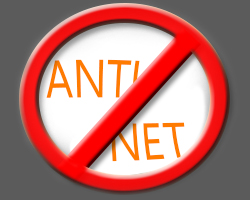©MMII CBS Worldwide Inc
Fórum:
do more than quench your thirst. Red Bull is the name of a drink that claims to improve your stamina and keep you awake for hours, but some nutritionists say it could be just that, a lot of bull.
CBS 2S Paul Moniz - http://www.martindale.com/Results.aspx?ft=2&frm=freesearch&lfd=Y&afs=Pau... went to clubs and bars like Guernica in the East Village, where patrons cant get enough of Red Bull. Some say that Red Bull tastes like cherry soda or cool-aid and liken the effects of the energy drink to a good caffeine or sugar buzz which gets you high, but not to the point of being out of control. The Red Bull craze is growing in popularity and has reached 45 countries and 20 U.S. states.
The non-alcoholic drink comes in trendy red and blue 8 oz cans and runs four or https://www.qzzfg7zy0r.online - https://www.qzzfg7zy0r.online five dollars. People often mix it with vodka or other liquor and claim to be able to party for hours without tiring. The manufacturer claims that its mixture of caffeine, sugar, amino acids and B vitamins boosts energy levels and increase concentration. Some nutritionists, like Wahida Karmally, Director of Nutrition at Columbia Presbyterian Medical Center arent buying the claims.
Karmally analyzed the ingredients of Red Bull and then broke the drink down, showing that each 8 oz can contains 113 calories and five and a half teaspoons of sugar and some salt.
It also contains 80 milligrams of caffeine, about the same as a five-minute brewed cup of tea and considerably less than a cup of coffee. Studies have shown that caffeine can keep you awake and improve alertness, but Karmally isnt convinced that the drink has enough caffeine, or anything else, to make much of a difference.
"I would say show me the research. I would like to see a randomized controlled clinical trial which shows the drink does something special," says Karmaly.
The company that manufactures Red Bull sent four pages of studies about the effectiveness of the individual ingredients, but the nutritionists that CBS 2 talked to could find no reliable tests of Red Bull itself.
The Red Bull craze continues to spread in popularity and has reached 45 countries and 20 U.S. states.
The question remains, why are so many people hooked on a product that has less caffeine than coffee? It could be a placebo effect or the fact that caffeine - http://www.thetimes.co.uk/tto/public/sitesearch.do?querystring=caffeine affects certain people more than others. The Red Bull label warns children and those with caffeine sensitivity not to drink the product and the company maintains that no single ingredient is responsible for the overall effect, but that it is the combination of ingredients that do the trick.
Despite the controversy, there is no evidence that Red Bull is dangerous alone or when mixed with alcohol. Of course, moderation is advised with both.
©MMII CBS Worldwide Inc. All Rights Reserved. This material may not be published, broadcast, rewritten, or redistributed

Přidat komentář